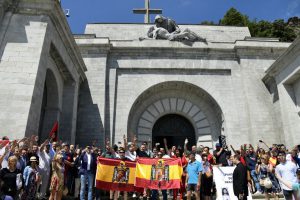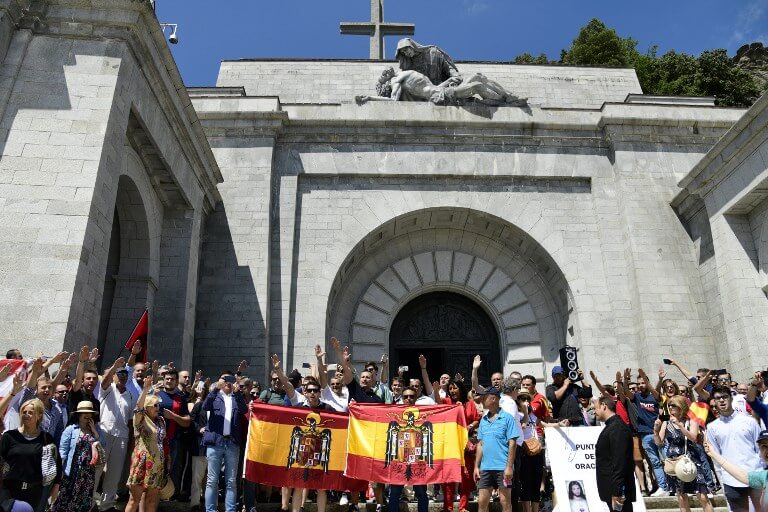The remains of Spanish dictator Francisco Franco, after years of delays and legal wrangles, will finally be exhumed from his tomb in the Valley of the Fallen memorial site by 25 October at the latest, the acting Spanish government announced on Friday.
The announcement followed a Supreme Court ruling this week that removed the final legal hurdle to exhuming Franco’s remains from his mausoleum, and moving them to a family crypt in a small cemetery outside Madrid where his wife is buried.
ALSO READ: Spotlight: ‘When you attack Franco, you attack over half of Spain’
Moving Franco’s remains was a key election pledge of acting socialist prime minister, Pedro Sánchez, but the issue has been dogged by delays due to objections from Franco’s family. Yet, the court ruling now opens the way for the exhumation before the general election on 10 November, the fourth election in four years..
‘The dictator can’t be in a state tomb,’ said acting deputy prime minister, Carmen Calvo, when announcing the deadline for the exhumation. She also said the Franco family will be notified of the time of the exhumation, which will be closed to the media, with 48 hours notice.
ALSO READ: Spanish artist defaces Franco tomb

Some 34,000 people are buried in the Valley of the Fallen, which Franco ordered to be built to commemorate all those who died on both sides during the Spanish Civil War. Yet, as Franco is also buried there, the site is often associated with his repressive regime.
Amnesty International (AI) reacted to the news that a deadline has been set for the exhumation, saying that it ‘fulfills the recommendations’ made by various experts, including the UN special rapporteur on the promotion of truth, justice and reparation.
ALSO READ: Focus: the on-going challenge of moving Franco’s remains
Yet, the human rights organisation also warned that the Spanish authorities still have ‘plenty of work to do’ in updating and ‘contextualizing’ the Valley of the Fallen memorial site, in order to recover historical memory and give it an ‘educational’ purpose.
AI said it hoped the authorities will take measures to ‘dignify’ the cemetery and ‘respectfully protect’ the memory of those buried there. The group also said it hoped the government would listen to the demands of people who want to recover the remains of their relatives.


